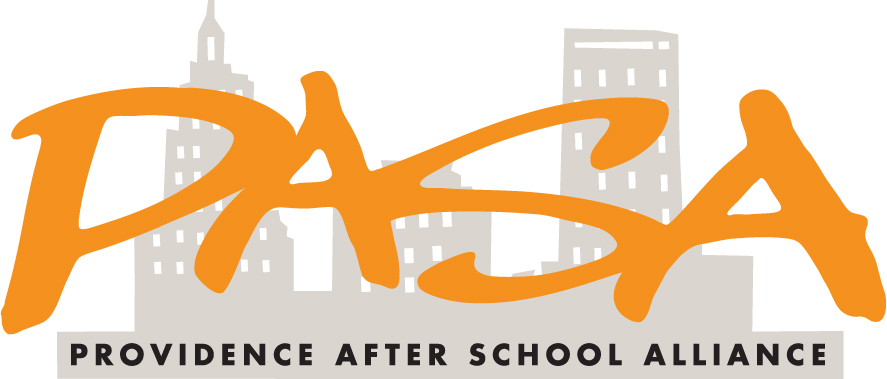At PASA, we launched the digital badge initiative in order to give Providence youth the leverage they need to have the same opportunity to reach their college and career dreams as their more well-connected peers. Two years ago, the Noyce Foundation funded PASA and Boston After School and Beyond (BASB) to develop a STEM Badge Initiative in the middle schools. This year, the Nellie Mae Education Foundation has funded PASA and the Boston Public Schools to build a digital badge strategy with its high school Advanced Coursework Network (ACN) program partners, Rhode Island Department of Education (RIDE), and the Providence Public School District (PPSD). Together, these two projects could create a badge culture in which youth graduate middle and high school with a badge portfolio to share with anyone of their choosing.
Youth in our programs have the opportunity to earn five badges. A digital badge represents a young person’s consistent demonstration of 21st Century skills highly valued by colleges and employers. These five skills are teamwork, communication, problem solving, engagement in learning, and perseverance. Instead of knowing the right person, young people with badges have something with perhaps even more currency: the social-emotional skills most valued in the workplace and by college admissions. Moreover, digital badges show that a young person earned the badge through rigorous assessment in an out-of-school and real-world learning opportunity in which they voluntarily participated.
Digital badges are based on instructors’ assessments, which are guided by a formative rubric informed by developmental research. Although badge acquisition is challenging, young people also receive consistent support as they grow and develop their skill sets. Throughout the program, instructors offer feedback and growth goals that offer specific steps a young person needs to take for improvement. As a result, youth are not only challenged but also supported as they develop and refine the five essential skills.
Once a young person earns a badge, he or she owns it and decides what to do with it. They are easy for youth to share electronically with teachers, schools, families and friends through social media, as well as future employers and colleges. Moreover, because badges are digital, they are “baked” with information available online about where, how, and when a young person earned the badge, all accessible by the click of the digital badge.
We are sincerely excited by PASA’s launch of the digital badge initiative and the opportunity it presents for all of Providence’s young people to have a fair shot at achieving their dreams.

